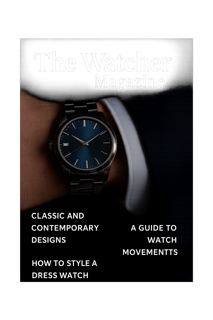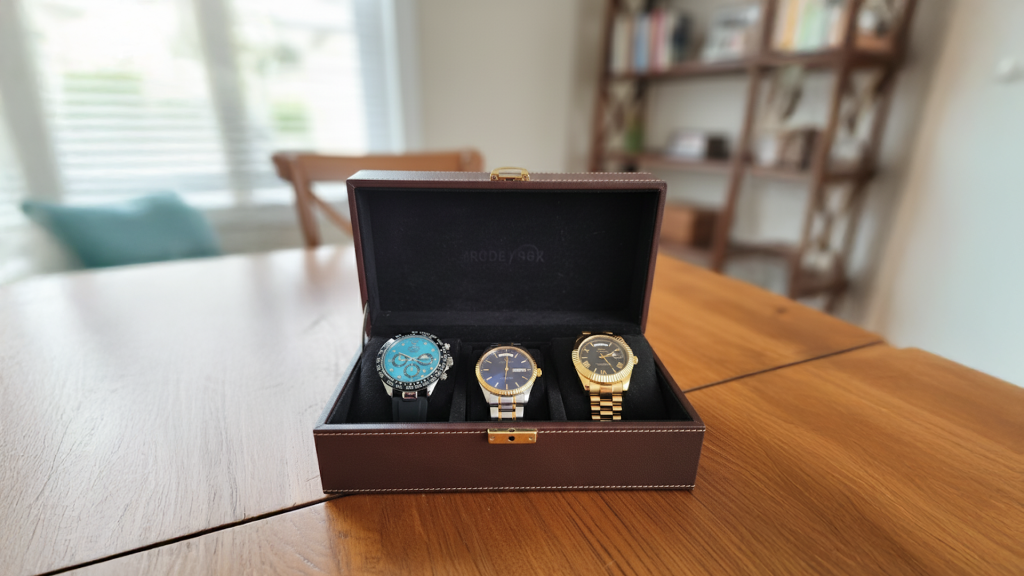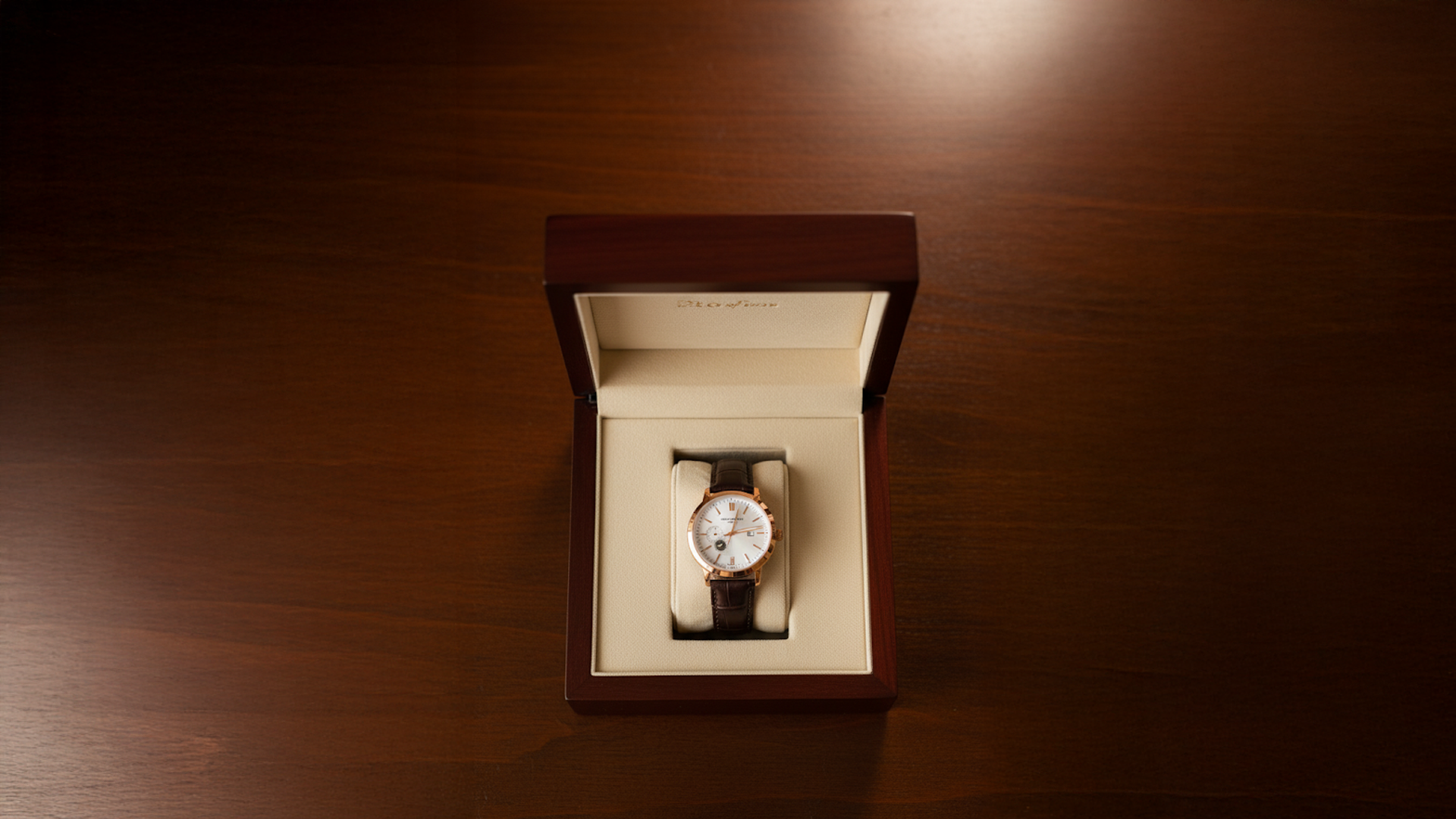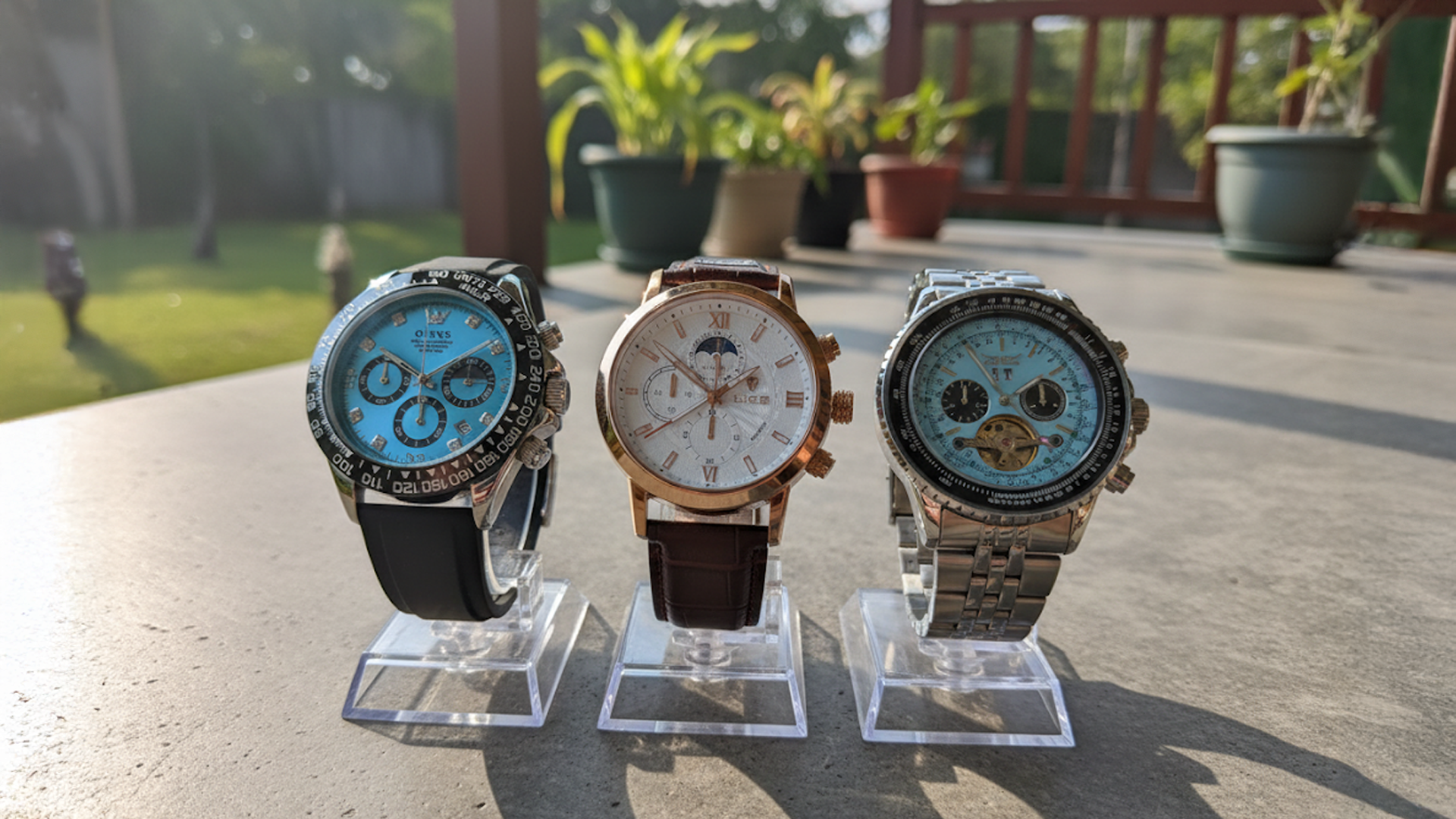Watches as an investment wasn’t something I thought about when I bought my first piece, I just wanted something stylish on my wrist. But over time, I realized that some watches not only hold value but can even appreciate, turning a passion into a smart financial move. In this post, I’ll share what I’ve learned about which watches are worth collecting, which aren’t, and how to approach watch investing like a pro.
Why People See Watches as an Investment
The world of luxury watches has always held a unique allure. Beyond their function as timekeepers, fine watches are symbols of craftsmanship, heritage, and personal style. But in recent years, a growing question has emerged among both seasoned collectors and newcomers: are watches a good investment?
The answer is not as straightforward as a simple “yes” or “no.” While certain models can appreciate in value and become highly sought after, not every watch purchase should be approached as an investment. Let’s break down what collectors should consider before treating watches as assets.
Watch as an Investment Factors:
1. The Allure of Collectible Timepieces
Some watches are more than just accessories—they’re cultural icons. Brands like Rolex, Patek Philippe, and Audemars Piguet have produced models that consistently hold or even increase their value over time. Scarcity plays a big role here. Limited-edition releases, discontinued models, or watches with historical significance tend to attract strong demand on the secondary market.
For example, a stainless steel sports watch from a major Swiss brand may retain its value better than a gold dress watch, simply because of global demand. Understanding these dynamics is crucial for anyone hoping to collect strategically
2. Market Trends and Timing Matter
Like any investment, timing plays an important role in the watch market. Prices fluctuate depending on economic conditions, global demand, and even cultural trends. In recent years, social media and celebrity endorsements have driven interest in specific models, creating sudden surges in value. However, markets can cool quickly, and watches that were once “must-haves” may lose some of their luster.
This is why most experts advise buyers to purchase watches primarily for personal enjoyment, with potential investment value considered a secondary benefit.
3. Condition, Rarity, and Provenance
The value of a watch depends heavily on three key factors:
- Condition: Well-maintained watches, especially those with original parts, hold their value better than heavily restored or modified pieces.
- Rarity: Limited editions or discontinued models tend to generate long-term interest.
- Provenance: A strong ownership history, such as a watch belonging to a notable figure, can elevate value dramatically.
Collectors often emphasize keeping the original box, papers, and accessories, as these details add credibility and significantly impact resale prices.
4. Modern Independent Brands on the Rise
While traditional powerhouses dominate the conversation, independent watchmakers are carving out a strong presence in the market. They may not always match the resale performance of the biggest names, but they offer artistry and uniqueness that appeal to collectors seeking more than just investment potential.
An OBSYSS watch quality review highlights how independent brands are being recognized not only for their craftsmanship but also for their growing relevance among serious enthusiasts. For those who value exclusivity and individuality, these makers can be rewarding additions to a collection.
5. Should You Buy for Passion or Profit?
Ultimately, the best advice is simple: buy watches because you love them. Treating them strictly as investments can be risky, as the market is unpredictable and often driven by trends outside a collector’s control. A well-chosen watch should bring daily enjoyment, with any future appreciation in value serving as an added bonus.
For some, the joy comes from wearing a beautifully crafted piece of mechanical art. For others, it’s about the thrill of tracking a model’s trajectory on the market. In either case, passion should be the starting point.
Final Thoughts on watches as an investment
Watches can indeed be a good investment under the right circumstances, but they shouldn’t be seen as guaranteed assets. The key lies in understanding the market, prioritizing quality, and above all, buying pieces that resonate personally. Whether you’re drawn to a timeless classic or an emerging independent brand, the true value of a watch is as much about the experience as the price tag.








